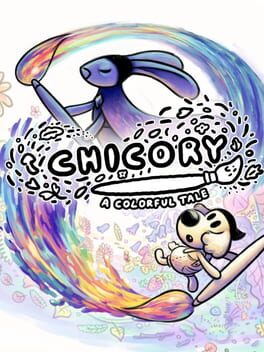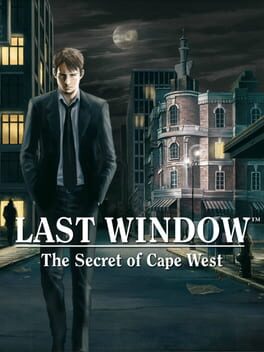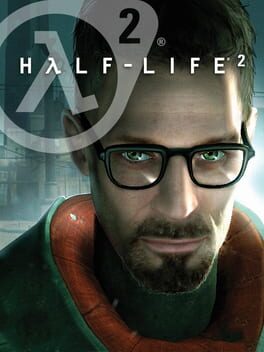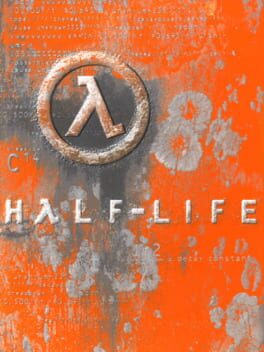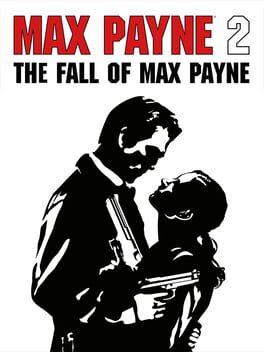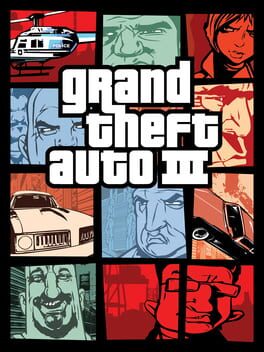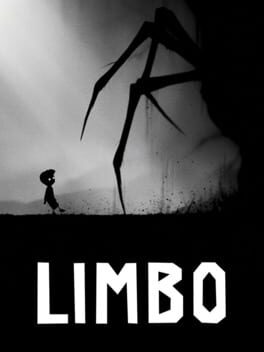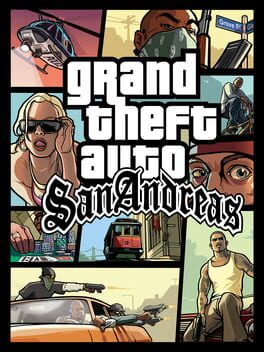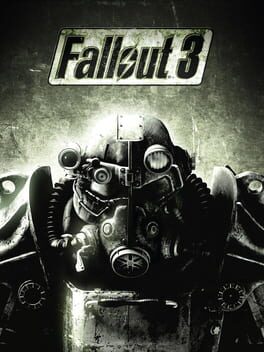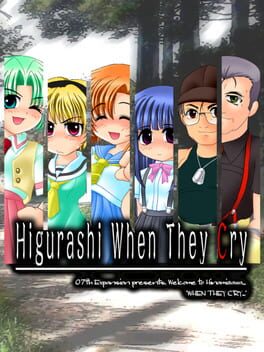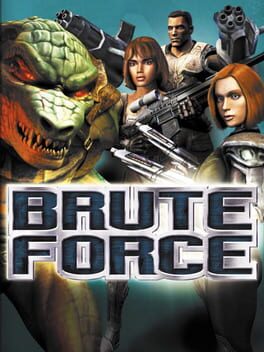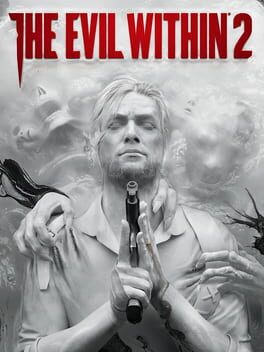ohcalypsoh
79 Reviews liked by ohcalypsoh
knew this was leaving game pass so i had intended to spread it out over the remaining days of the month with plenty of time to spare. ended up playing this over two days in bigger binge sessions instead. i really enjoyed myself.
didn't know a ton about this going in other than the charming artwork. i had assumed this was going to be an RPG (a turned based one at that) with more focus on combat and the other elements that come with it than the puzzle adventure game with light combat that this turned out to be. what i ended up with is more to my tastes most of the time so it worked out for the better.
cannot stress enough how taken i was with this for its duration. loved the universe with the characters within, visuals/colors, music, and even the combat was better than i had expected when it showed. i could see where this might be a bit repetitive but it also probably didn't help that i played through this the way i did.
i've been drifting away from going for 100% in most games but i'm really glad i did here. some of the stuff could be taken or left (the litter?) but pretty much everything else felt essential. the mystery side diversion with the cameo from Frog Detective and general Ace Attorney elements was so wonderful.
i would've gotten to this eventually but i want to give thanks to @Wollom for suggesting this in my you choose, i play list. the mixture of that and it leaving game pass brought me to it earlier than i would've otherwise.
looking forward to my eventual replay.
didn't know a ton about this going in other than the charming artwork. i had assumed this was going to be an RPG (a turned based one at that) with more focus on combat and the other elements that come with it than the puzzle adventure game with light combat that this turned out to be. what i ended up with is more to my tastes most of the time so it worked out for the better.
cannot stress enough how taken i was with this for its duration. loved the universe with the characters within, visuals/colors, music, and even the combat was better than i had expected when it showed. i could see where this might be a bit repetitive but it also probably didn't help that i played through this the way i did.
i've been drifting away from going for 100% in most games but i'm really glad i did here. some of the stuff could be taken or left (the litter?) but pretty much everything else felt essential. the mystery side diversion with the cameo from Frog Detective and general Ace Attorney elements was so wonderful.
i would've gotten to this eventually but i want to give thanks to @Wollom for suggesting this in my you choose, i play list. the mixture of that and it leaving game pass brought me to it earlier than i would've otherwise.
looking forward to my eventual replay.
Tevi
2023
The Legend of Zelda
1986
beaten for the first time without save states. it's pretty easy sailing for most of the game (especially given you can waltz into the very first dungeon completely busted in regards to items and upgrades) until the second to last dungeon where it went to hell. extra heart containers, upgraded weapons/armor, and such can only go so far with some of the combat encounters.
i think this will always be a appreciate for what it is and what it did for the medium while never fully enjoying it by itself type thing for me.
looking forward to slowly working my way through the rest of the series. a lot of replays but there's a few that i've yet to beat in there too.
i think this will always be a appreciate for what it is and what it did for the medium while never fully enjoying it by itself type thing for me.
looking forward to slowly working my way through the rest of the series. a lot of replays but there's a few that i've yet to beat in there too.
Hotel Dusk will always have more personal significance as it was first and because of when it came out but this has been growing in my favor with each playthrough.
wonderful contained setting and cast of characters that ends up feeling larger than the first due to the stakes involved. the music is once again absolutely incredible with this possibly taking the crown for my favorite of the two.
hopefully the Another Code remakes did well enough for the Kyle Hyde saga to see something too.
wonderful contained setting and cast of characters that ends up feeling larger than the first due to the stakes involved. the music is once again absolutely incredible with this possibly taking the crown for my favorite of the two.
hopefully the Another Code remakes did well enough for the Kyle Hyde saga to see something too.
Starfield
2023
Struggled to put together my thoughts on this. Escalates from mediocre to engaging somewhere about ten hours in, followed immediately by an overwhelming sense of emptiness. All of Bethesda's quirks are here in the worst ways: dead mannequin npcs, clumsy systems that don’t quite cohere, a terrible main quest that drifts across the flimsy surface of alien artifact sci-fi stories.
But something worse about this one is the lack of texture. There are very few freaks, minor discoveries off the beaten path, companions that make you feel something (Nick <3). Everyone is so nice, the politics completely empty. Cities are so strange and dead, with sound design attempting to evoke the density of Night City but lacking any real scale - the abstraction of a fantasy setting no longer here to distract you from asking: why is this just one square block?
This must’ve been a monumental effort to produce, but why dedicate seven years to creating a pale echo of The Expanse, Mass Effect & Firefly? There are hints of another game in here - one with meaningful travel and fewer, more fleshed out worlds - that was abandoned prior to shifting to this smooth, soulless, bloated final form.
But something worse about this one is the lack of texture. There are very few freaks, minor discoveries off the beaten path, companions that make you feel something (Nick <3). Everyone is so nice, the politics completely empty. Cities are so strange and dead, with sound design attempting to evoke the density of Night City but lacking any real scale - the abstraction of a fantasy setting no longer here to distract you from asking: why is this just one square block?
This must’ve been a monumental effort to produce, but why dedicate seven years to creating a pale echo of The Expanse, Mass Effect & Firefly? There are hints of another game in here - one with meaningful travel and fewer, more fleshed out worlds - that was abandoned prior to shifting to this smooth, soulless, bloated final form.
Half-Life 2
2004
Removes the visual noise and circular paths from its predecessor and flows like an aqueduct. That it is one of the more linear games of its kind and yet also still feels more expansive than most is a thing of great mystery. Really it just does everything so well. To me it's the perfected rhythms of tension and release, of incentivizing forward momentum through novel affordances (weapons and vehicles), and of pure audiovisual affect: the game knows when to reveal a horizon or a sunset, and when to leave you buried or with the sun fading in the wrong direction, feeling in the shadows trapped and alone.
Half-Life
1998
Maddening and menial at times, but the helplessness of it is mesmerizing to a degree where its blemishes can almost be overridden. Audio design is a specific technical feature to this in that it influences the perceived helplessness; "crunchy" textures underlie the Houndeye's sonic windups and the Vortigaunt's lightning strikes, among other events, to form loud, indistinguishable sensory overload among crowds of enemies that can only be responded to with uncalculated shotgun blasts and long jumps. Being faced with enemy hordes in a first-person framing is not an innovation here (DOOM and Quake, of course, being inspirations) but, unique to its antecedents, there is a difficultly shaking off a feeling that for all of the experimental weapons to vaporize others with, Freeman's (or, rather, the self-insert for the player's confusion and franticness to be projected onto) lack of preparation is clear as day.
Xen, perhaps contrary to wideheld negative views among those surprised by its sudden shift in environmental curation (or, rather, a perceived lack of), suceeds in some ways to enhance helplessness giving the scarcity of its space with enemy crowds being the only ones to fill it. The gift of the Long Jump Module messages to the player that, similar to DOOM and alike, speed and momentum are the only antidotes to the bullseye that is Freeman in such a wide empty space as Xen's outside with a lack of companions to be found. However, the internals of Xen, specifically starting within Interloper, finds itself beset with a slippery physics engine that transforms platforming into a tedious task with little room for error or enjoyment to be found in pulling off such platforming. Jumps via the Xen Trampoline feel scattershot with trial-and-error required to understand how exactly to manipulate the GoldSrc engine's idea of momentum in order to find success in reaching far platforms, which especially makes the final boss fight almost a test of luck.
The limits of GoldSrc are worth re-emphasizing here given its quirks also creating potential frustration outside of Xen. Simple tasks such as moving crates backwards or sideways, for example, become unintuitive as a result of GoldSrc wildly pulling crates outside of the player's grasp. At certain points, Freeman may stick to corners while in cover from enemy gunfire which forces the player to reload their last save. Even moving can become a strange task at times due to Freeman's speed, which can prove tricky with areas that require almost pinpoint precision in navigating tight areas with deep depths.
Still, the franticness of moving through Black Mesa and Xen almost snuff out residual exhaustion from such engine frustrrations once they are dealt with. The aforementioned influence from iD Software gameplay is effectively recontextualized in a horror framing that frames combat as a last-measure tool which barely ensures survival rather than as a confident source of energy for the player's mindset. Shotgun blasts spread through Xen not as a measured signal of dominance, but rather as almost minute threats to an ecosystem at the brink of spreading its tentacles into Earth's vents and dams.
Xen, perhaps contrary to wideheld negative views among those surprised by its sudden shift in environmental curation (or, rather, a perceived lack of), suceeds in some ways to enhance helplessness giving the scarcity of its space with enemy crowds being the only ones to fill it. The gift of the Long Jump Module messages to the player that, similar to DOOM and alike, speed and momentum are the only antidotes to the bullseye that is Freeman in such a wide empty space as Xen's outside with a lack of companions to be found. However, the internals of Xen, specifically starting within Interloper, finds itself beset with a slippery physics engine that transforms platforming into a tedious task with little room for error or enjoyment to be found in pulling off such platforming. Jumps via the Xen Trampoline feel scattershot with trial-and-error required to understand how exactly to manipulate the GoldSrc engine's idea of momentum in order to find success in reaching far platforms, which especially makes the final boss fight almost a test of luck.
The limits of GoldSrc are worth re-emphasizing here given its quirks also creating potential frustration outside of Xen. Simple tasks such as moving crates backwards or sideways, for example, become unintuitive as a result of GoldSrc wildly pulling crates outside of the player's grasp. At certain points, Freeman may stick to corners while in cover from enemy gunfire which forces the player to reload their last save. Even moving can become a strange task at times due to Freeman's speed, which can prove tricky with areas that require almost pinpoint precision in navigating tight areas with deep depths.
Still, the franticness of moving through Black Mesa and Xen almost snuff out residual exhaustion from such engine frustrrations once they are dealt with. The aforementioned influence from iD Software gameplay is effectively recontextualized in a horror framing that frames combat as a last-measure tool which barely ensures survival rather than as a confident source of energy for the player's mindset. Shotgun blasts spread through Xen not as a measured signal of dominance, but rather as almost minute threats to an ecosystem at the brink of spreading its tentacles into Earth's vents and dams.
This review contains spoilers
This is love. When someone, no matter the cost, shows you there is hope, a choice that you can put down the gun.
More instinctive than the cold detective noir of the original. Payne runs on fear and painkillers, with every pulse of hesitation only delivered with a bullet lodged in his brain near-death. His infatuation with Sax is a desire to finally escape the role he has involuntarily taken on as a noir hero, enforced through the warning of ignoring free ammo on TV or in the Address Unknown funhouse where identity is erased under spinning columns and cut-out scientists and police finding a conspiratorial core to the city that can only be responded to with paranoia-fueled gunshots. Such desire is near-realized before snuffed out, with the only reality being a flight-or-fight reaction awaiting at every corner and the hope of another doomed angel from above descending someday.
More instinctive than the cold detective noir of the original. Payne runs on fear and painkillers, with every pulse of hesitation only delivered with a bullet lodged in his brain near-death. His infatuation with Sax is a desire to finally escape the role he has involuntarily taken on as a noir hero, enforced through the warning of ignoring free ammo on TV or in the Address Unknown funhouse where identity is erased under spinning columns and cut-out scientists and police finding a conspiratorial core to the city that can only be responded to with paranoia-fueled gunshots. Such desire is near-realized before snuffed out, with the only reality being a flight-or-fight reaction awaiting at every corner and the hope of another doomed angel from above descending someday.
Grand Theft Auto III
2001
From Claude's scrunched up face to his black jacket and weird green pants and the water that churns the colour of concrete, there is a heaviness to Grand Theft Auto III that more serious entries (IV) never matched. But there's also a brutal clarity to the space, where we are always able to see objects in relation to one another, and where collisions seem active instead of incidental. It's just a genuinely explosive game, from the way it looks to the way it controls. I heard someone say it's the purest of the series, and it's also one of the purest games. Where it lacks in atmospheric effects its distinctive grime textures carry the weight of the whole city, and if that's not enough there's the radio permanently tuned to the haunted vibrations of Scientist Rids the World of the Evil Curse of the Vampires.
Limbo
2010
Not yet at the stage where in-game GPS can be used as a crutch for overly dense or visually monotonous levelling, the world design of San Andreas is all interconnected backstreets and shortcuts, and the artful use of colour and texture to suggest interest or to assist the player in building a mental map of all the landmarks across San Andreas' diverse city. To move through it is to learn it intimately, to belong in it, and to read the space and know which escape route to follow under which circumstances. Every backyard and park and underbridge. The missions carefully ripple out from Grove St, introducing new territories bit by bit, such that the player is still able to connect familiar signs and buildings with new vistas, like stars to a navigator.
Then when it suddenly all becomes too much, the story goes that it's too much too. We're miles away in the country and it's night time and the spaces are far too open and now we're lost because we're in exile. CJ cannot go home. The intricate network of passageways that constitutes Los Santos (where it's always better to move by foot or bicycle) is replaced with bare hills and long, straight highways leading to new nowheres. That which once took hours on foot because it was bustling with life takes minutes by car, and the human textures of the world are lost to a shiny sameness that actively works to deflect player interest. The passage from Grove St is to the Desert of the Real, its veins running cold and efficient with the anonymity of hyperspace.
The emptiness of much of San Andreas outside of Los Santos is testament to its overambition, but this works well for its narrative where CJ must return from the desert back home. It also gives the landscape an air of mystery that has to be actively filled by player imagination, hence the accumulation of community myths concerning ghosts, cryptids, angels, and parallel dimensions. GTA V would attempt to tap into some of these narratives in order to control them, but in San Andreas it's the organic byproduct of players, glitches, and weird landscapes. It's the perfect synthesis of broken and polished gameplay and features, and because of its homely details and manic scope, still one of the biggest feeling games there is.
Then when it suddenly all becomes too much, the story goes that it's too much too. We're miles away in the country and it's night time and the spaces are far too open and now we're lost because we're in exile. CJ cannot go home. The intricate network of passageways that constitutes Los Santos (where it's always better to move by foot or bicycle) is replaced with bare hills and long, straight highways leading to new nowheres. That which once took hours on foot because it was bustling with life takes minutes by car, and the human textures of the world are lost to a shiny sameness that actively works to deflect player interest. The passage from Grove St is to the Desert of the Real, its veins running cold and efficient with the anonymity of hyperspace.
The emptiness of much of San Andreas outside of Los Santos is testament to its overambition, but this works well for its narrative where CJ must return from the desert back home. It also gives the landscape an air of mystery that has to be actively filled by player imagination, hence the accumulation of community myths concerning ghosts, cryptids, angels, and parallel dimensions. GTA V would attempt to tap into some of these narratives in order to control them, but in San Andreas it's the organic byproduct of players, glitches, and weird landscapes. It's the perfect synthesis of broken and polished gameplay and features, and because of its homely details and manic scope, still one of the biggest feeling games there is.
Fallout 3
2008
Competent in establishing a ghostly east coast Americana (as one would hope), but falls apart when attempting to zoom in on any stronger narrative strand. Bethesda comes off as apathetic towards truly establishing a macroscale narrative to grasp on to in regard to empowering the self-insert protagonist's autonomy and motivation to reshape the Capitol Wasteland. Heritability looms over the main story with much of what drives the player's exploration being hints towards answers as to the nature of your existence--where you were actually born, how much you truly are in the shadow of another, why you were kept miles away from the truth, etc.--but you never walk away as a character that grew up with a father who cared for you over decades, with James's dialogue being largely restricted to small passages over his technological goals for the Capitol Wasteland and grief for a love whose face is left a mystery (at least up until New Vegas).
So much of the main story being apathetically built on heritability is perhaps what dooms it: the past, where James heavily looms over as a parental figure motivating much of your decision-making, is collapsed into three sections built solely of character creation and tutorials to their name while being broken up by title cards as the only gesture towards a longer temporal span with little of who you were or are now to be gleaned from these elliptical interludes. Meanwhile, the future denies your narrative footprints to be truly weightful enough in comparison to your father's shadow that you continue to live under. The ending cards more clearly outline the flaws of the "future" here: those who walk the Capitol Wasteland cannot express their future in their own words, and their faces can only be deployed as the stinger to the list of good deeds or sins, respectively, honoring or tainting your family tree that the narrator speaks from. You don't truly "influence" the Wasteland; your legacy is built off of how much you truly respected the forces who helped bring you into the Wasteland.
Much more can be said about the heavily flawed DLC, especially when weighed in comparison to New Vegas. Operation Anchorage displays Bethesda's worst instincts in comedy with none of post-apocalyptic America to act as the contrast to jingoistic military propaganda, while Mothership Zeta only desires to make a mockery out of sci-fi with little punchlines to draw from outside of alien gibberish. The Pitt and Point Lookout fare better in emphasizing the Capitol's relative optimism in comparison to what's outside of its boundaries for those unluckier, but finding anything to establish the political structures that led to the outcomes within these add-on cities is a stretch (the latter being somewhat more successful here). Broken Steel is a half-written apology for those disappointed by the base game preventing them from seeing their footprints in their brought upon Wasteland, with its goal only serving to act as a rushed drive towards final domination via energy weaponry. None of what's found here, even in the best case of Point Lookout, can match up to New Vegas's engaging explorations of the wider west coast, whether in Dead Money with its paranormal holograms haunting the skeletons of the Sierra Madre or in Honest Hearts drawing the persistent threat of colonization into a post-apocalyptic America.
I can't fully bring myself to work against what exists here. Fallout, as a concept, rarely fails to allure the player into exploring the gestures towards another America that lived full lives in your footsteps before disappearing in a flash, whether in the emptied out diners or dormant Metro robots waiting to be awoken from their mechanical slumber again. However, it would be hard to deny the disappointment brought upon by Bethesda's narrative failures, with Obsidian's future work in the series existing at the edges as the force that only truly realizes what could compose a 3D Fallout. Before that, though, is work left unfinished and only a sandbox for you to click on heads in V.A.T.S with.
So much of the main story being apathetically built on heritability is perhaps what dooms it: the past, where James heavily looms over as a parental figure motivating much of your decision-making, is collapsed into three sections built solely of character creation and tutorials to their name while being broken up by title cards as the only gesture towards a longer temporal span with little of who you were or are now to be gleaned from these elliptical interludes. Meanwhile, the future denies your narrative footprints to be truly weightful enough in comparison to your father's shadow that you continue to live under. The ending cards more clearly outline the flaws of the "future" here: those who walk the Capitol Wasteland cannot express their future in their own words, and their faces can only be deployed as the stinger to the list of good deeds or sins, respectively, honoring or tainting your family tree that the narrator speaks from. You don't truly "influence" the Wasteland; your legacy is built off of how much you truly respected the forces who helped bring you into the Wasteland.
Much more can be said about the heavily flawed DLC, especially when weighed in comparison to New Vegas. Operation Anchorage displays Bethesda's worst instincts in comedy with none of post-apocalyptic America to act as the contrast to jingoistic military propaganda, while Mothership Zeta only desires to make a mockery out of sci-fi with little punchlines to draw from outside of alien gibberish. The Pitt and Point Lookout fare better in emphasizing the Capitol's relative optimism in comparison to what's outside of its boundaries for those unluckier, but finding anything to establish the political structures that led to the outcomes within these add-on cities is a stretch (the latter being somewhat more successful here). Broken Steel is a half-written apology for those disappointed by the base game preventing them from seeing their footprints in their brought upon Wasteland, with its goal only serving to act as a rushed drive towards final domination via energy weaponry. None of what's found here, even in the best case of Point Lookout, can match up to New Vegas's engaging explorations of the wider west coast, whether in Dead Money with its paranormal holograms haunting the skeletons of the Sierra Madre or in Honest Hearts drawing the persistent threat of colonization into a post-apocalyptic America.
I can't fully bring myself to work against what exists here. Fallout, as a concept, rarely fails to allure the player into exploring the gestures towards another America that lived full lives in your footsteps before disappearing in a flash, whether in the emptied out diners or dormant Metro robots waiting to be awoken from their mechanical slumber again. However, it would be hard to deny the disappointment brought upon by Bethesda's narrative failures, with Obsidian's future work in the series existing at the edges as the force that only truly realizes what could compose a 3D Fallout. Before that, though, is work left unfinished and only a sandbox for you to click on heads in V.A.T.S with.
Higurashi is at its strongest when it is concerned with trauma, both on a personal and a communal level. When it understands the effects trauma can have on someone, and when it dearly wishes to find some way out of the cycles of violence that can so often cause traumatised individuals, groups and generations to, knowingly or unknowingly, condemn others to trauma also. Whilst these are words that don't always apply to Higurashi on a broader level, in its exploration of these themes Higurashi feels both mature and astute; there are so many moments when someone's reaction to the trauma they've experienced or are experiencing feels painfully, heartbreakingly, incisively on-point.
This element of Higurashi is so successful in part because Ryukishi has a deep empathy for his characters. He has an unwillingness to wholly discard someone for their misdeeds, and a deep desire to look inside people and see what makes them tick, what makes people choose the paths they do, and wants you to understand this also. There's one particular instance where I can't bring myself to be onboard with his hardline approach of "hate the sin and not the sinner", and this approach feels to me incongruous with the fact that there are characters in the story that are just wholly irredeemable (Satoko's uncle, for instance), but it's hard to deny there's something compelling about how much Ryukishi cares, and him asking you to try and care just a little bit more too.
Beyond all of this, Higurashi is concerned with generational divides, small village cultures on the edge of being wiped out by modernisation and a fury at the heartlessness of bureaucracy and how it leaves people to drown, with paranoia and fear and the kind of deep, unrelenting love that would have you tear apart everything for someone, with hope and despair and miracles. Higurashi is also concerned with friendship, and despite "the power of friendship" being one of the most worn out and uninspired themes for anime, manga and (I assume) visual novels it actually manages to make such a deeply impassioned plea towards this that I was just entirely hooked in by Higurashi's beating heart.
These are the highs of Higurashi, but it is also ultimately an often-uneven experience. There is a small amount of content here that is indefensible, and which I'm shocked I don't see more condemnation of. Basically any scene set in Angel Mort is just a lock to star creepy sexualisation of teenage girls played up for humour and treated as just completely acceptable, multiple side-character adults in the story make occasional creepy comments along these lines also, and a key character, Irie, is obsessed with the idea of putting one of the game's youngest characters in a maid outfit and marrying her. This content accounts for maybe 3% of the game if I had to guess, so a very minor amount, but it's all just wretched. It's so bizarre too because elsewhere Higurashi is able to render its women with remarkable depth, taking common character archetypes and ultimately subverting just about every expectation you enter with about them in ways that feel natural and which let you really understand how each character ticks by the end of the story, and yet despite this it just can't consistently Be Normal about them at all and just has to have its creepy moments. A couple of the Angel Mort scenes genuinely made me feel a bit ill to read and I would not blame someone for just refusing to read Higurashi because of this content.
More broadly, Higurashi is also desperately in need of a harsher editor at points. Higurashi's eight chapters combined are over one and a half million words long, or longer than reading the entire Lord of the Rings trilogy three times over, and took me 100 hours to finish (which I gather is faster than most people, even). During my readthrough I had multiple extended breaks, which is partially just that my life has been busy this past year, but partially that Higurashi has a habit of stretching out its slice-of-life scenes, confused metaphor-laden inner-monologues and moments of hopeless despair far beyond their point being effectively made. My final break from Higurashi lasted four months, only for me to discover upon my return that the final chapter, beyond a certain point, starts to descend into what feels at times like third-rate fanfiction, and it left me wishing that Ryukishi knew how to communicate his story a little bit more succinctly rather than stretching things on beyond the point where all the intrigue had been quelled and all the questions answered.
A mixed bag, then, but one with a lot to say and a lot it believes in, with an amazing sense of mystery, and some lovable characters that have a lot more going on that you first suspect. Wildly imperfect, at times exhausting or even just reprehensible, but fascinating and with a lot of heart behind its horror. I can't say that I would ever recommend Higurashi, but I did get a lot from the experience.
This element of Higurashi is so successful in part because Ryukishi has a deep empathy for his characters. He has an unwillingness to wholly discard someone for their misdeeds, and a deep desire to look inside people and see what makes them tick, what makes people choose the paths they do, and wants you to understand this also. There's one particular instance where I can't bring myself to be onboard with his hardline approach of "hate the sin and not the sinner", and this approach feels to me incongruous with the fact that there are characters in the story that are just wholly irredeemable (Satoko's uncle, for instance), but it's hard to deny there's something compelling about how much Ryukishi cares, and him asking you to try and care just a little bit more too.
Beyond all of this, Higurashi is concerned with generational divides, small village cultures on the edge of being wiped out by modernisation and a fury at the heartlessness of bureaucracy and how it leaves people to drown, with paranoia and fear and the kind of deep, unrelenting love that would have you tear apart everything for someone, with hope and despair and miracles. Higurashi is also concerned with friendship, and despite "the power of friendship" being one of the most worn out and uninspired themes for anime, manga and (I assume) visual novels it actually manages to make such a deeply impassioned plea towards this that I was just entirely hooked in by Higurashi's beating heart.
These are the highs of Higurashi, but it is also ultimately an often-uneven experience. There is a small amount of content here that is indefensible, and which I'm shocked I don't see more condemnation of. Basically any scene set in Angel Mort is just a lock to star creepy sexualisation of teenage girls played up for humour and treated as just completely acceptable, multiple side-character adults in the story make occasional creepy comments along these lines also, and a key character, Irie, is obsessed with the idea of putting one of the game's youngest characters in a maid outfit and marrying her. This content accounts for maybe 3% of the game if I had to guess, so a very minor amount, but it's all just wretched. It's so bizarre too because elsewhere Higurashi is able to render its women with remarkable depth, taking common character archetypes and ultimately subverting just about every expectation you enter with about them in ways that feel natural and which let you really understand how each character ticks by the end of the story, and yet despite this it just can't consistently Be Normal about them at all and just has to have its creepy moments. A couple of the Angel Mort scenes genuinely made me feel a bit ill to read and I would not blame someone for just refusing to read Higurashi because of this content.
More broadly, Higurashi is also desperately in need of a harsher editor at points. Higurashi's eight chapters combined are over one and a half million words long, or longer than reading the entire Lord of the Rings trilogy three times over, and took me 100 hours to finish (which I gather is faster than most people, even). During my readthrough I had multiple extended breaks, which is partially just that my life has been busy this past year, but partially that Higurashi has a habit of stretching out its slice-of-life scenes, confused metaphor-laden inner-monologues and moments of hopeless despair far beyond their point being effectively made. My final break from Higurashi lasted four months, only for me to discover upon my return that the final chapter, beyond a certain point, starts to descend into what feels at times like third-rate fanfiction, and it left me wishing that Ryukishi knew how to communicate his story a little bit more succinctly rather than stretching things on beyond the point where all the intrigue had been quelled and all the questions answered.
A mixed bag, then, but one with a lot to say and a lot it believes in, with an amazing sense of mystery, and some lovable characters that have a lot more going on that you first suspect. Wildly imperfect, at times exhausting or even just reprehensible, but fascinating and with a lot of heart behind its horror. I can't say that I would ever recommend Higurashi, but I did get a lot from the experience.
Brute Force
2003
The Evil Within 2
2017
"improves" on the more polarizing elements of the original by almost completely removing what it excelled at and made it so unique while having nothing special to offer of its own.
combat gameplay sees an almost universal downgrade from the original (even after some considerable skill upgrades) so it's nice that the AI is so braindead and you can stealth almost everything. when you can't it's probably tragic but at least you should have plenty of ammo if you've been stealthy or even avoiding combat like i was.
the varied grab bag of horrific settings and aesthetics is (mostly) thrown out for a bland town based hub with side quests, enemies that you won't want to bother with, and random shit everywhere. in the later chapters of the game things become more linear in addition to finally getting somewhere in terms of having standout visual design but then it's over.
new Sebastian is a bit of a bummer both in terms of voice over and characterization. the sad dad thing feels like the most boring possible thing to have done. whereas TEW1 felt like a breath of fresh air when it released, this was blatantly of its time. (and that time was a bit shit lmao)
not unplayable but a massive disappointment regardless.
combat gameplay sees an almost universal downgrade from the original (even after some considerable skill upgrades) so it's nice that the AI is so braindead and you can stealth almost everything. when you can't it's probably tragic but at least you should have plenty of ammo if you've been stealthy or even avoiding combat like i was.
the varied grab bag of horrific settings and aesthetics is (mostly) thrown out for a bland town based hub with side quests, enemies that you won't want to bother with, and random shit everywhere. in the later chapters of the game things become more linear in addition to finally getting somewhere in terms of having standout visual design but then it's over.
new Sebastian is a bit of a bummer both in terms of voice over and characterization. the sad dad thing feels like the most boring possible thing to have done. whereas TEW1 felt like a breath of fresh air when it released, this was blatantly of its time. (and that time was a bit shit lmao)
not unplayable but a massive disappointment regardless.
